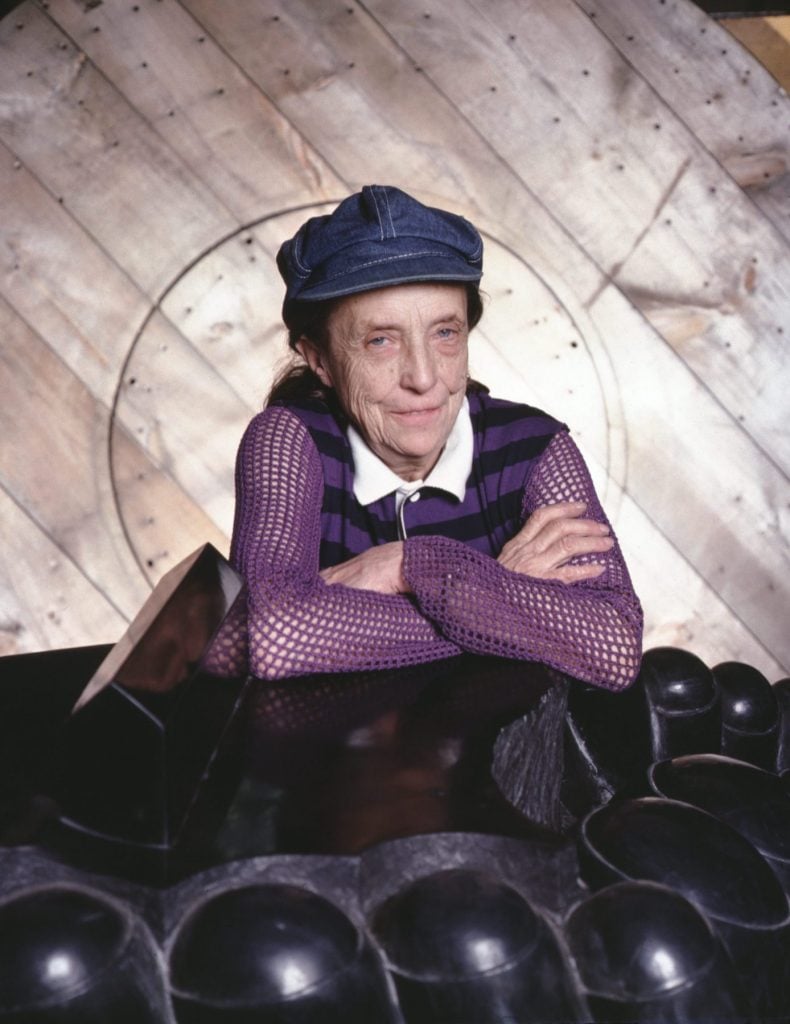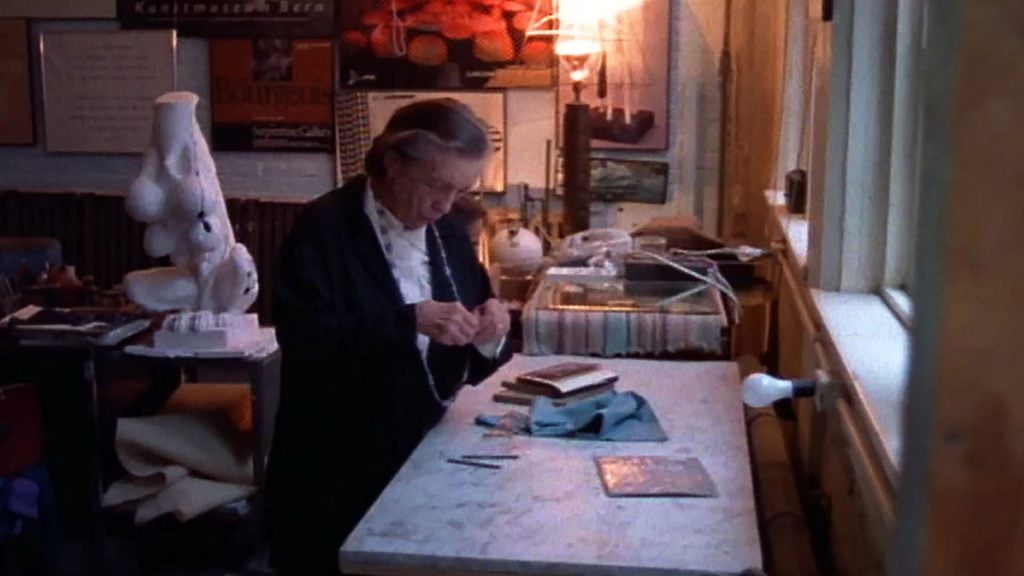Watch Louise Bourgeois Demonstrate How She Sculpted Her Own Hands
As part of a collaboration with Art21, hear news-making artists describe their inspirations in their own words.

Although the Paris-born artist Louise Bourgeois is best known for her monumental sculptures of spiders and her intimately scaled works in bronze, stone, and wood, Bourgeois, who died in 2010, was also an accomplished painter and textile artist.
Now, two separate retrospectives are dedicated to the artist’s lesser-known mediums. The show at the Hayward Gallery in London, “Louise Bourgeois: The Woven Child,” explores the artist’s use of her own clothing to imbue her deeply personal works with a deeper physicality, and “Louise Bourgeois: Paintings” at the Metropolitan Museum of Art shines a light on works the artist completed upon arriving to New York early in her career, when she established a visual language she would return to over the years.
Bourgeois’s work is rooted in her own relationships and life experiences, which are sometimes painful, sometimes sexual, and sometimes reflect the trauma she experienced as a child. In an exclusive interview with Art21 filmed in 2001 before the artist’s death at age 98, Bourgeois described the importance of what she called autobiographique, or autobiography, in her work.
“It is the helplessness of a child and then here is the help that the grownup can give a small child,” she said. “One takes care of the other. The whole thing means we are together and we are not, we are not arrogant, we are not ashamed of our helplessness.”


0 تعليقات